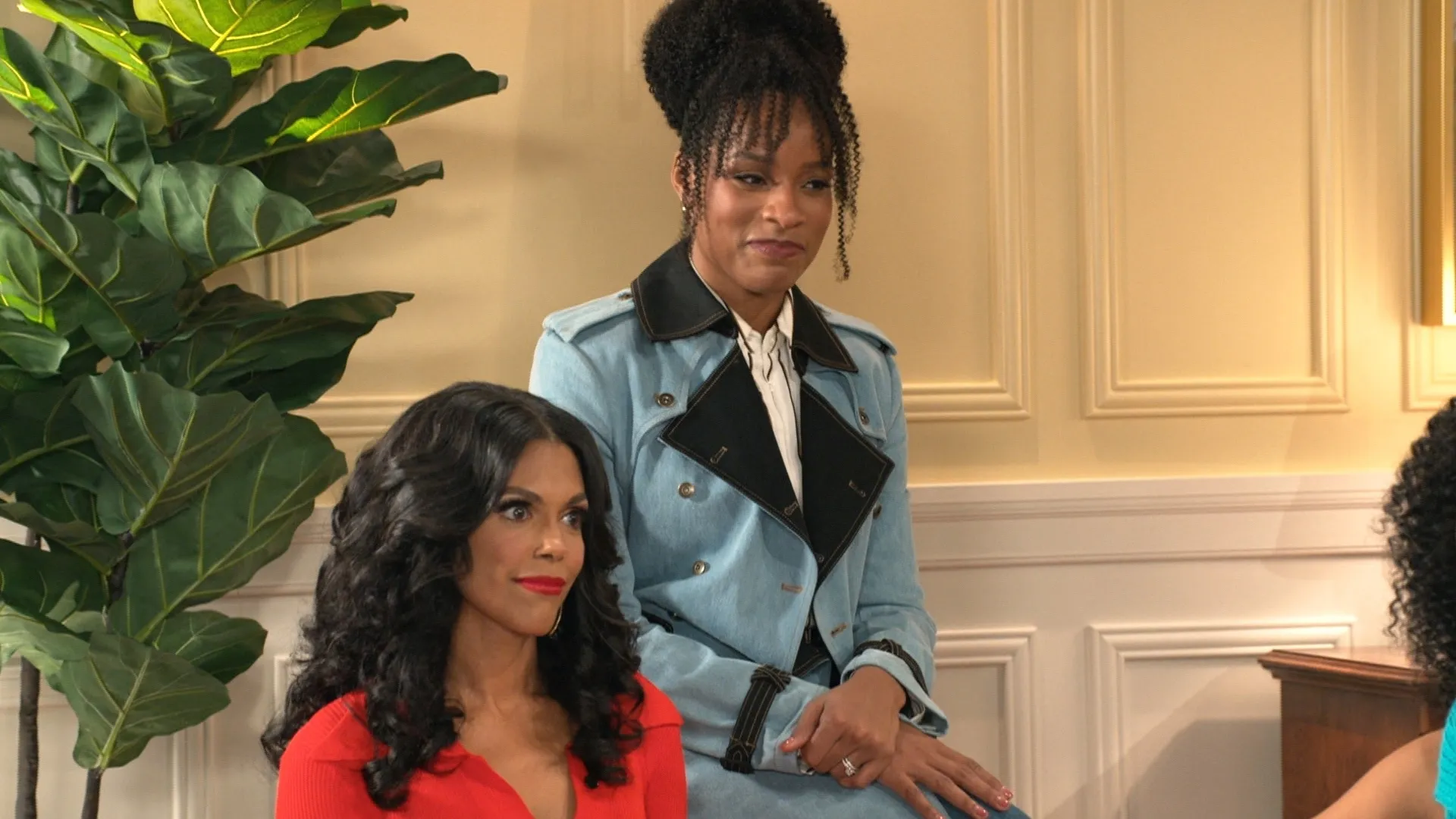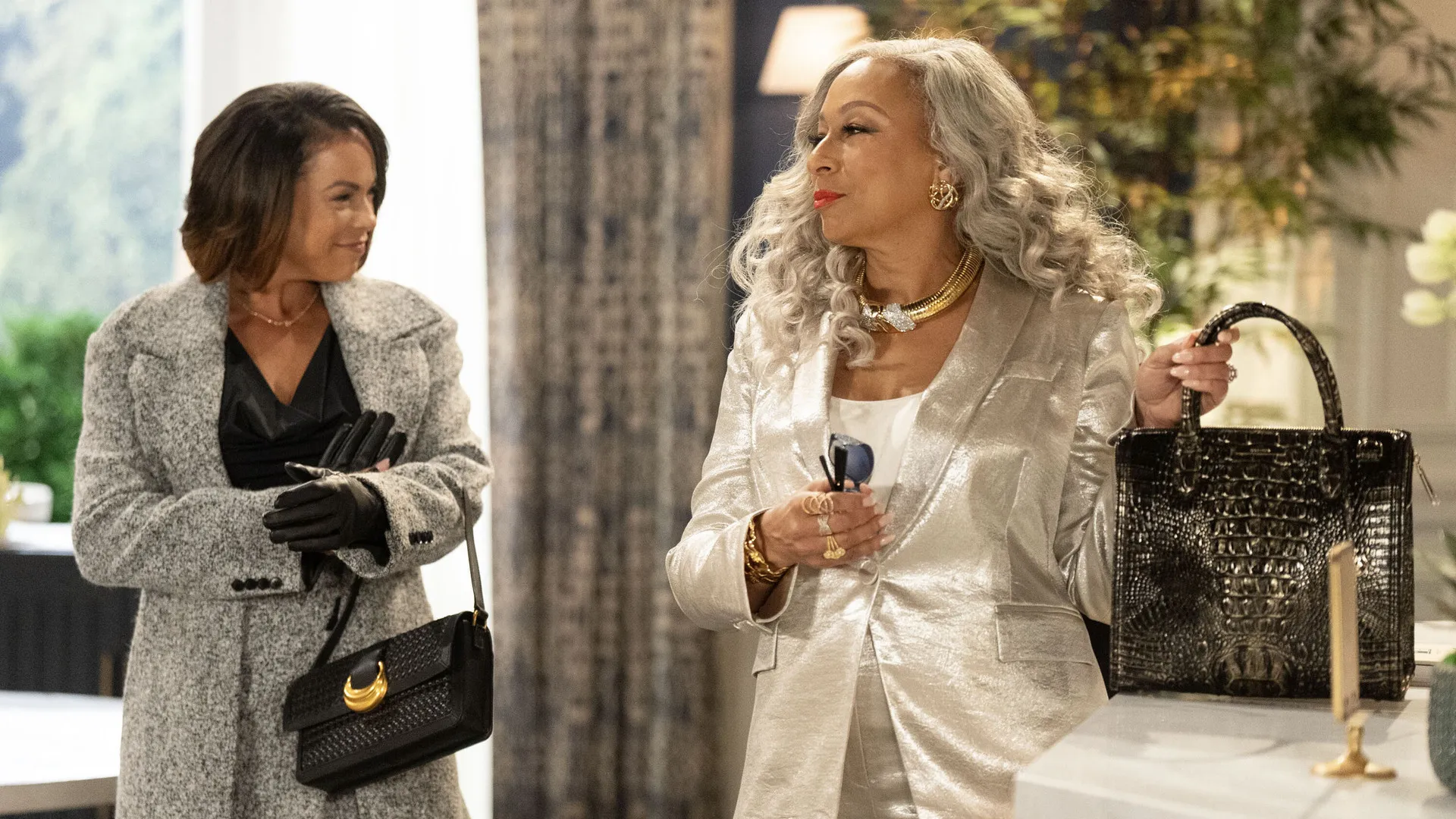A new television series challenges traditional soap opera narratives, presenting a fresh perspective on storytelling. Set in Fairmont Crest, Maryland, the show follows the Dupree family through intricate personal dynamics, exploring generational tensions and complex relationships.
This production represents a groundbreaking moment in television, emerging as the first daytime soap opera in 26 years with a predominantly Black cast in a genre historically dominated by white actors.
The series provides a nuanced portrayal of Black experience, showcasing characters who are multidimensional, successful, and deeply rooted in their community. The Duprees demonstrate strength, wealth, and social influence, moving beyond stereotypical representations and presenting a rich, authentic narrative that reflects the depth and complexity of Black life.
The show signals a meaningful shift in media representation, challenging long-standing industry patterns and creating space for stories that have been systematically overlooked. It presents a powerful statement about inclusion, storytelling, and the importance of seeing diverse experiences reflected on screen.
The Dupree Dynasty: A Family at the Intersection of Power and Drama
The Dupree family anchors a compelling television narrative, showcasing a multi-generational clan with profound community influence.
Anita Dupree, an EGOT-winning singer, and Vernon Dupree, a retired senator-civil rights activist, represent a powerful Black family challenging traditional television storytelling. Their presence highlights narratives of Black success rarely explored in daytime television.
Dani Dupree emerges as a complex central character, her tumultuous divorce with Bill Hamilton creating significant family tension. Karla Mosley’s performance captures Dani’s emotional intensity, revealing deep personal struggles that intersect with broader social experiences. Her character embodies the complex interplay between individual pain and societal expectations.
Nicole Dupree Richardson, Dani’s sister, provides a contrasting perspective. A psychiatrist married to a plastic surgeon, her seemingly stable life masks intricate family dynamics. Her relationship with her mother, Anita, reveals the subtle pressures within successful Black families.
Supporting characters like Martin, an ambitious politician, and Chelsea, a model fighting for independence, add depth to the narrative. Their stories intertwine with the Dupree family’s experiences, exploring themes of personal ambition, familial connections, and social pressures.
The series presents a rich portrayal of Black experience, moving beyond simplistic representations to show a family that is powerful, complicated, and deeply human.
A Modern Twist on Soap Opera Traditions
The television series reinvents soap opera storytelling, blending traditional genre elements with contemporary perspectives. Rooted in familiar dramatic traditions, the show explores family conflicts, passionate relationships, and hidden narratives through a diverse lens.
Dani Dupree’s character exemplifies the show’s intense dramatic approach. Her volatile reaction to her ex-husband’s engagement reveals deeper themes of personal identity and social expectations. Karla Mosley’s performance captures the emotional complexity of a character grappling with personal upheaval and societal pressures.
The narrative structure follows soap opera conventions, presenting quick-paced scenes that introduce multiple character arcs simultaneously. Early episodes focus on establishing interconnected relationships, creating a rich tapestry of personal and familial tensions.
The series offers a nuanced exploration of Black experiences, presenting affluent characters who challenge traditional television representations. Characters navigate complex personal and professional landscapes, revealing intricate family dynamics and social interactions.
Each episode builds intricate storylines, weaving personal conflicts with broader social themes. The show creates a compelling world where individual stories intersect with wider cultural conversations.
A Powerful Reflection of Black History and Cultural Legacy
The Dupree family embodies a powerful narrative of Black achievement and social progression. Set in the affluent community of Fairmont Crest, the series explores the complex experiences of a family that has carved out significant space in American society.
Anita Dupree, an EGOT-winning singer, and Vernon Dupree, a retired senator and civil rights activist, represent generations of Black excellence. Their stories connect personal achievement with broader social movements, revealing the intricate paths to success for Black Americans.
Martin Richardson, a young congressman, continues the family’s tradition of civic engagement. His character illustrates the ongoing commitment to social change and political influence that defines the Dupree family’s legacy.
The television series challenges traditional narratives about Black experiences. By presenting a wealthy, influential Black family, the show reveals multifaceted dimensions of Black life beyond stories of struggle. Characters demonstrate intellectual, cultural, and social prowess that transcend simplistic representations.
Fairmont Crest emerges as a symbolic space where Black success is normalized, celebrated, and deeply rooted in historical resilience. The Dupree family’s journey reflects a nuanced exploration of identity, power, and cultural transformation.
Characters in Flux, Performances with Power
Karla Mosley’s portrayal of Dani Dupree electrifies the television screen. Her character emerges as a complex emotional landscape, oscillating between fierce outbursts and raw vulnerability. Dani represents more than an individual story—she embodies the intricate experiences of Black women wrestling with familial expectations and social pressures.
Tamara Tunie’s Anita Dupree commands attention with quiet elegance. Her performance reveals a matriarch of deep emotional complexity, balancing external composure with internal strength. Clifton Davis as Vernon Dupree complements her, bringing nuanced depth to the family’s patriarchal figure.
Daphnée Duplaix’s Nicole Dupree Richardson offers a counterpoint to Dani’s intensity. Her subtle performance uncovers hidden tensions beneath a seemingly calm exterior, suggesting deeper family dynamics.
Supporting characters like Martin and Chelsea hint at rich narrative possibilities. Their emerging storylines promise exploration of personal ambition, family conflict, and individual growth.
The cast creates a powerful narrative tapestry, exploring themes of identity, generational experience, and personal transformation through intimate character portrayals.
Looking Ahead to a New Era in Daytime Drama
The television series introduces a fresh perspective to daytime storytelling, challenging traditional genre expectations. By presenting a Black family with depth, complexity, and emotional richness, the show opens new pathways for narrative exploration.
Characters like Dani Dupree represent a profound shift in television storytelling. Her intricate personal journey reveals layers of family dynamics, social pressures, and individual struggles that extend beyond simplistic representations.
The Dupree family narrative weaves through generations, exploring themes of personal ambition, racial identity, and familial connections. Each character brings a unique perspective to the screen, creating a vibrant and nuanced portrayal of Black experience.
The series demonstrates the potential for television to explore complex social dynamics. Characters move beyond stereotypical representations, presenting multifaceted individuals whose stories reflect broader cultural conversations.
By centering Black characters in positions of power and emotional depth, the show challenges existing television narratives and creates space for more inclusive storytelling.
The Review
Beyond the Gates Season 1
Beyond the Gates reinvents the daytime soap genre by offering a compelling blend of high drama, generational conflict, and nuanced Black representation. With standout performances and a rich cultural backdrop, it moves beyond familiar tropes to present a multi-layered narrative that reflects both personal and societal struggles. While early episodes set the stage for intricate character arcs, the show’s potential lies in its ability to balance spectacle with deeper storytelling. Its fresh approach to Black excellence and social dynamics promises a new chapter for daytime drama.
PROS
- Strong performances, particularly from Karla Mosley and Tamara Tunie.
- Fresh portrayal of Black excellence and affluent Black families.
- Complex character arcs and interpersonal drama.
- Grounded in cultural and historical significance, highlighting the rise of Black wealth.
CONS
- Pacing in early episodes may feel exposition-heavy.
- Some character development feels rushed or secondary to plot.




















































